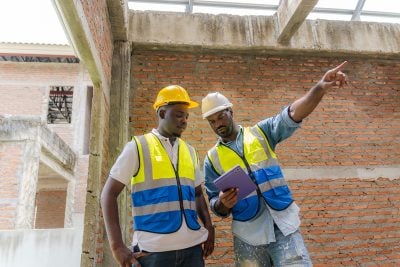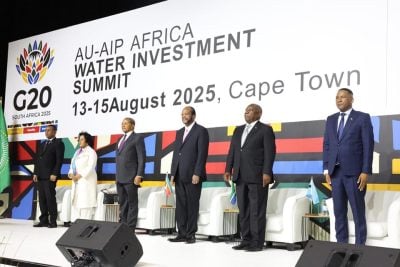This article was produced with the support of OCP
The World Bank and the OCP Group today announced a game changing partnership to support farmers in West Africa and the Sahel.
At the World Bank and IMF Annual Meetings in Marrakech, the OCP Chairman Mostafa Terrab and World Bank Vice President for Western and Central Africa Ousmane Diagana signed a Memorandum of Understanding (MoU) to foster cooperation and programs benefitting five million farmers in Benin, Guinea, Mali, and Togo, covering 10 million hectares. This cooperation aims at accelerating investments and reforms to make fertilizers more accessible and affordable to farmers. “These projects are an important step towards unlocking Africa’s potential in global food security,” said OCP Group’s Chairman and CEO, Mr. Mostafa Terrab. “The goal is to drive a just and sustainable agricultural transition, by widening the access of farmers in West Africa to customized fertilizers that nourish the soil and improve crop yields, which in turn enhances the livelihoods of farmers, thereby contributing to African development and prosperity.”
This is a critical partnership to help achieve the commitments made by the Ministries of Agriculture and Food Security of member countries of the Economic Community of West African States (ECOWAS) in the Lomé Declaration endorsed in May 2023.
“Both our institutions believe in accelerating investments and reforms to support a resilient agriculture that promotes sustainable development and creates jobs. This partnership between the World Bank and the OCP Group is turning the Lomé Declaration into action,” said Ousmane Diagana, World Bank Vice President for Western and Central Africa.
The partnership will focus on five areas of cooperation: (i) Improving soil health and fertility through digital soil mapping analysis and customized fertilization; (ii) Establishing agricultural technology and service centers to train and support smallholder farmers; (iii) Launching a Digital Farming School program to foster local capacities and entrepreneurship to transform the agri-food sector; (iv) Strengthening the capacity of ECOWAS to operationalize its Roadmap on fertilizers and soil health; and (v) Supporting the establishment of a Regional Center for Soil Health and Fertility management in West Africa hosted by the International Institute of Tropical Agriculture (IITA).
Under the partnership, both institutions reaffirm their commitment to the United Nations’ Sustainable Development Goals, in particular SDG 2 on hunger and food security, and SDG 13 on climate change.
 Sign in with Google
Sign in with Google 



